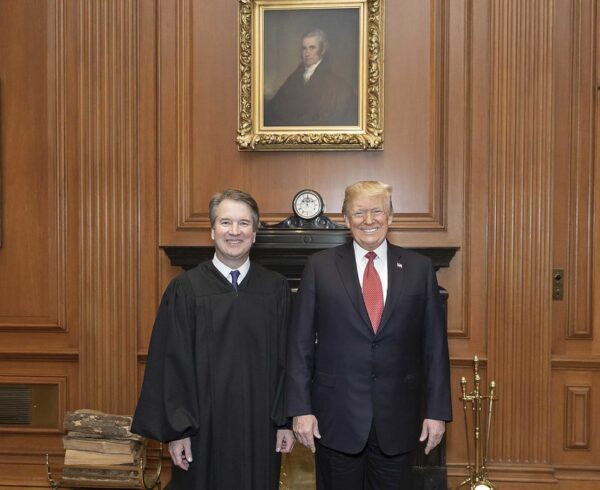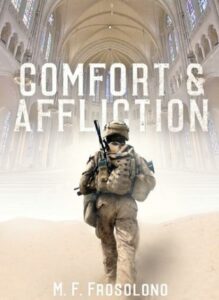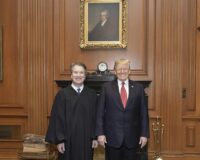I previously wrote about how the Frosolono line of my family came to the United States in the later part of the nineteenth century as immigrants from Italy. By the time I was born in 1938, the Frosolonos were well-assimilated into the society of this nation and, to my knowledge, have never needed public assistance in the form of welfare, subsidized housing, etc. We were not ashamed of our Italian heritage but understood that we are citizens of the United States and that our primary political or national allegiance would be to this country. We allowed ourselves to be assimilated into this country without relinquishing our individuality and some aspects of our cultural heritage. Like many immigrant families, the importance of our cultural heritage faded with time.
Sharia Law
Some sources indicate the majority, or at least significant percentages, of Muslim immigrants to the United States and native-born or naturalized Muslim citizens do not want to assimilate into the United States but, instead, desire for this country to change its laws, religions, and culture in order to establish the supremacy of Muslim values. A prime example of this non-assimilation would be the establishment of Sharia law as the sole legal system of this country. Muslims pursing this objective proclaim Sharia law surpasses the United States Constitution and the laws—civil and criminal—derived from that noble secular document.
Sharia law is the law of Islam and originates from four sources: (1) The Qur’an or the holy book of Islam, which Muslims believe was verbally revealed by God—through the angel Gabriel—to Muhammad, the Islamic prophet or messenger; (2) The actions and words of Muhammad; (3) Consensus from the Islamic community; and (4) Legal reasoning. Sharia law, therefore, encompasses a wide range of topics including public and private behaviors and private beliefs. In contrast, the Constitution is remarkably silent on private beliefs and has little to say about non-criminal private behaviors.
Although—for Muslims—Sharia law itself cannot be altered, interpretation of the law by imams provides some leeway. Imams are religious leaders in Islamic communities who are analogous, but not identical, to Christian ministers and priests. Discussions of Sharia law and its impact on Muslim societies often confuse religious precepts and cultural mores or customs. For instance, female genital mutilation or female circumcision, which has been practiced long before the Qur’an, appears to be much less a religious imperative and much more a cultural custom in many Muslim countries. Female genital mutilation constitutes a crime in the United States, regardless of how those who wish to impose this despicable practice might argue its “sanctification” based upon their religion or culture.
Religion and the Constitution
The First Amendment to the Constitution has two major provisions concerning religion—The Establishment and Free Exercise clauses: Congress shall make no law respecting an establishment of religion, or prohibiting the free exercise thereof. Historically, Establishment meant prohibiting state-sponsored churches, such as the Church of England. Today, the government can assist religion if (1) the primary purpose of the assistance is secular, (2) the assistance neither promotes nor inhibits religion, and (3) there is no excessive entanglement between religion and the government.
The Free Exercise Clause protects the rights of citizens to practice their religion as they please, so long as that practice does not violate a “public moral” or “compelling” governmental interest. An extreme example of violating a “public moral” would be a religious tenet or belief that specifies non-believers must be converted to a specific religion or murdered, a feature of the odious Islamic State. Inoculation against diseases can represent a compelling governmental interest in order to protect public health and safety: The Supreme Court of the United States has ruled that a state may force the inoculation of children whose parents would not allow inoculation based upon religious reasons.
Constitutional Difficulties
Some fundamentalist Judeo-Christians and Muslims share a distorted view of the Constitution: They believe that religious principles supersede the Establishment and Free Exercise clauses. Such fundamentalist Judeo-Christians argue that the United States was founded as a Judeo-Christian nation; therefore, Biblical laws should be incorporated into the Constitution. This position is exactly what devotees of Sharia Law wish for this nation. Both parties, however, miss the mark or ignore a prime benefit of the Establishment and Free Exercise clauses: prevention of religious wars in the United States similar to those that impoverished and demoralized Europe in past centuries and at present in the Middle East.
Despite the benefits of the Establishment and Free Exercise clauses, United States citizens who adhere to fundamentalist Judeo-Christian and Muslim beliefs about the superiority of their religious laws have the Constitutional right to agitate for changes to the document and the government of this country. The Constitution allows for amendments that could even destroy the document and government, as we know them. Federal law (18 U.S. Code § 2385), however, specifies that outright violence or explicit advocacy of violence cannot be used to effect such changes:
Whoever knowingly or willfully advocates, abets, advises, or teaches the duty, necessity, desirability, or propriety of overthrowing or destroying the government of the United States or the government of any State, Territory, District or Possession thereof, or the government of any political subdivision therein, by force or violence, or by the assassination of any officer of any such government; . . . .
Shall be fined under this title or imprisoned not more than twenty years, or both, and shall be ineligible for employment by the United States or any department or agency thereof, for the five years next following his conviction.
I fear fundamentalist Muslims—such as those belonging to Islamic State—in particular will pay no attention to this federal law. In fact, I question if admittance to, permanent residence status in, or citizenship in this country should be afforded to anyone who professes Sharia Law as superior to the Constitution. Intellectually, I recognize some fundamentalist Judeo-Christians will not hesitate to employ violence to accomplish their goals; however, I believe unrestrained fundamentalist Islamists pose a greater danger.
To be clear: I am not opposed to admitting refugees per se into this country, such as some of the Syrian refugees who fled the brutality of Islamic State. I object, however, to allowing Muslim refugees to set up autonomous zones in this country governed under Sharia law, not the Constitution. My opposition is equally fervent against conservative/orthodox Jewish communities who impose their own local laws regarding travel through their areas on the Jewish Sabbath. Similarly, I oppose separate Judeo-Christian communities that attempt to operate outside of the Constitution by imposition of their views of Biblical laws.
We must be vigilant to keep two principles in mind: (1) We may believe our religious laws are, indeed, superior to the laws of this country while praying that we are never faced with the choice of which to obey in given circumstances; and (2) Regardless of our religious affiliation, we should seek to change hearts and minds through profession, proclamation, witness, and service rather than through imposition of religious laws.
So far, the Establishment and Free Exercise clauses have almost always allowed all citizens of this country to practice and to proselytize for their disparate faiths without violence. Yes, I used almost because I recognize how this country has sometimes failed in this process as members of the Church of Later Day Saints, American Indian tribes, and devotees of other religions can assert. We could have done better under the Constitution and we should do better now. Doing better definitely means that fundamentalists of any religion cannot be allowed to use violence or intimidation to accomplish their goals.










